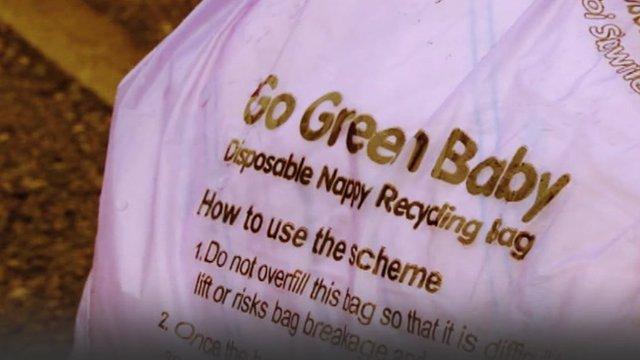Welsh landfill costs fall by 23% since 2011, figures show
- Published
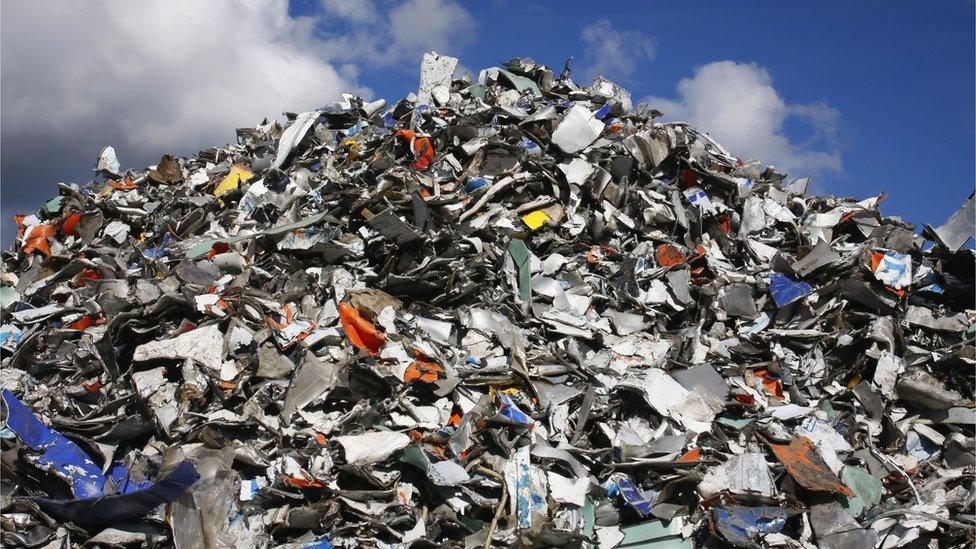
The amount spent by Welsh councils on landfill has fallen by more than 23% in the last four years, according to figures obtained by BBC Wales.
The total weight of landfill has dropped from 641,000 tonnes in 2012/13 to 450,000 tonnes in 2014/15 - a 30% fall in three years.
Since, 2011/12, the annual cost has dropped from more than £62.5m to £47.7m.
The Welsh government said Wales was "continuing to lead the way in the UK".
BBC Wales follows the journey of an aluminium can from the bin to landfill
National Resources Minister Carl Sargeant said: "As the only UK nation to set statutory recycling targets our approach is clearly paying dividends."
Welsh Conservatives leader Andrew RT Davies argued a bottle deposit scheme could boost recycling rates further and promised to introduce a pilot scheme should his party form a government in May's assembly election.
While most councils have cut their landfill bill since 2011/12 - Torfaen slashed theirs by 89% - others have seen costs remain flat or even rise.
Conwy's bill increased by 27% over the period, while Denbighshire's was up 7% and Gwynedd rose 18% from 2012/13.
All three authorities said the increase was attributable to increases in landfill tax, not an increase in waste.
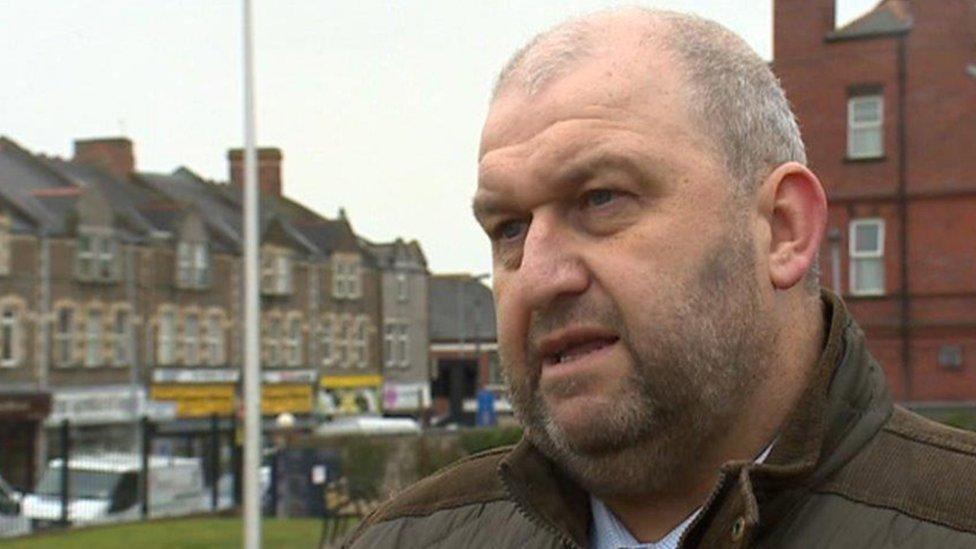
Carl Sargeant said Wales had hit the EU 2020 target for biodegradable waste collected by local authorities and sent to landfill eight years early
Only Ceredigion refused to provide figures for the last four years, saying they were "part of a commercial contract".
After Torfaen, the top performers were Blaenau Gwent, with an 80% drop, and Pembrokeshire, down 62%.
The overall drop in Wales could be even greater as some figures were not provided.
The reasons for the variation between councils' varying costs were "complex", according to Clare Walters, director of Powys firm Ceri Environmental Consulting.
"Authorities often enter into contracts for waste management and so some may have been tied into contracts which do not optimise recycling whilst others may have been able to renew contracts and may have been able to take advantage of new recycling or recovery opportunities." she said.
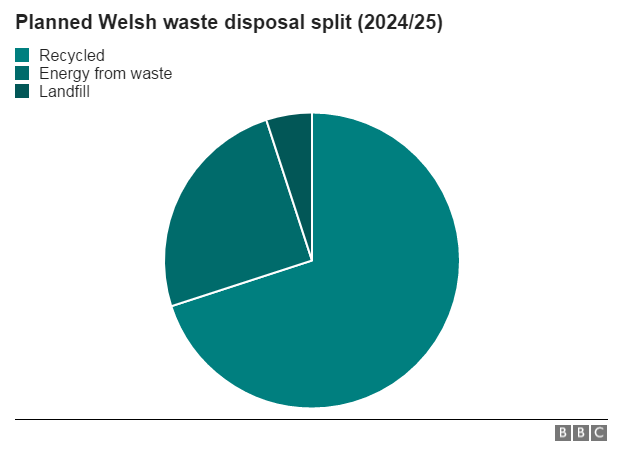
The Welsh government has targeted all councils with recycling 58% of waste by this year - last year's rate stood at 56% - with the latest figures due for release on 18 February.
Seven authorities have already hit the mark.
Wales' overall rate compares favourably with England's, which stands at nearly 44%; the EU target for the UK is for 50% of household waste to be recycled by 2020, external.
The aim is to reduce landfill tonnage to just 5% of Wales' total waste by 2024/25, with 100% of all waste recycled by 2050.
Councils with highest recycling rates
2014-15
65.9%
Denbighshire
-
65.4% Pembrokeshire
-
63.2% Monmouthshire
-
61.6% Ceredigion
Landfill tax
Introduced in October 1996
The tax is in addition to the overall cost of landfill and forms a proportion of the gate fee
Active waste - which is biodegradable - is charged at £80 per tonne
Inactive waste - which is largely water insoluble and non or very slowly biodegradable - costs £2.50 per tonne
To be devolved to Wales in April 2018

Several councils have forced down their costs by disposing of more rubbish using an energy from waste process, when waste is superheated to release gases then collected and burned to produce steam which drives turbines to generate electricity.
Solutions in Wales have seen paint and nappies recycled.
Councils body, the Welsh Local Government Association, said the latest landfill figures showed Wales had cemented its place as a "world leader for sustainable waste management.".
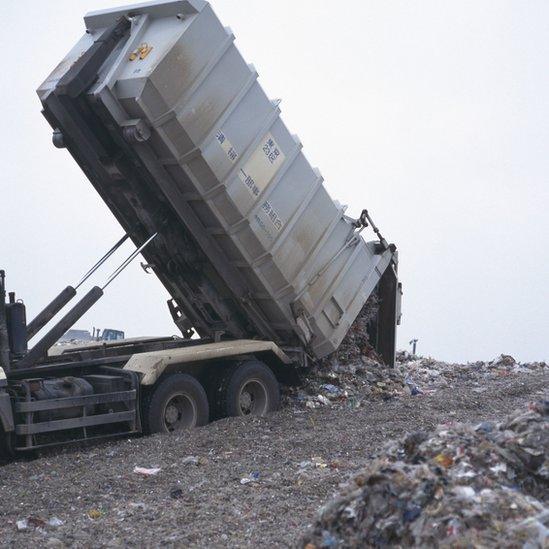
- Published27 July 2015
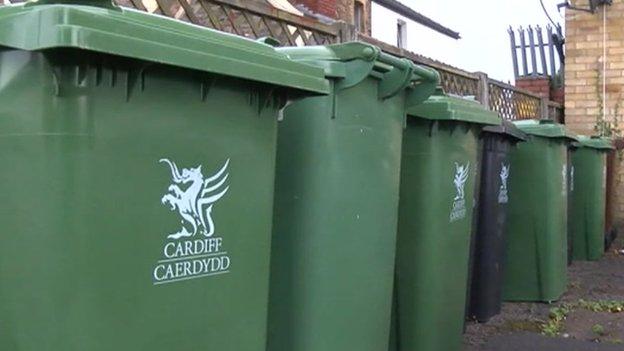
- Published20 August 2015
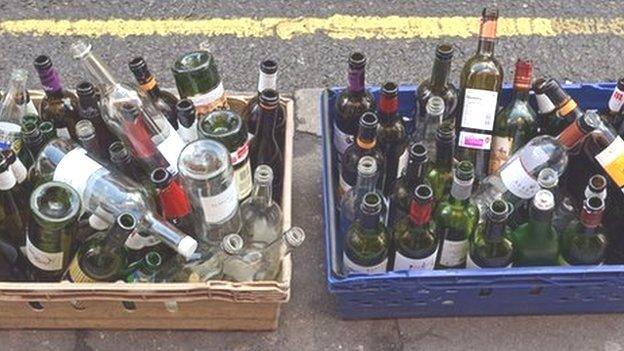
- Published12 May 2015
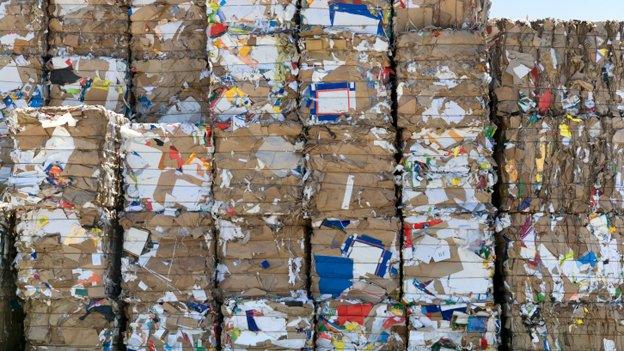
- Published20 August 2015
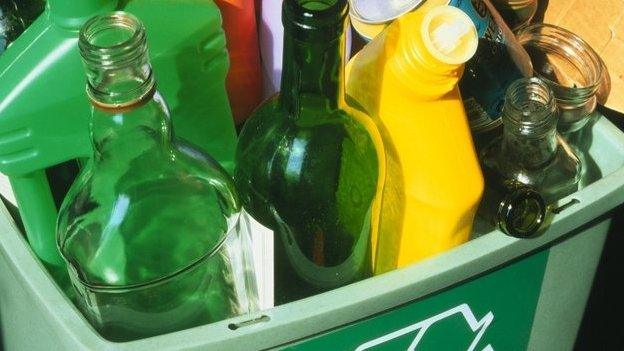
- Published20 August 2015
